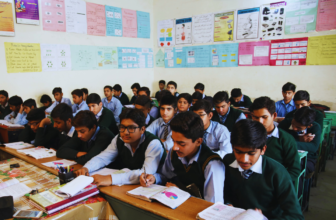IIT Delhi Has Now Brought Out Remarkable Pieces of Research Which Aim at Making the World Electrically and Energy-Efficient and Thus Make the World a Sustainable Place to Live In
Last Updated on 4 weeks by Sweta
The Indian Institute of Technology, Delhi has just launched a number of extraordinary research projects that focus on electric mobility, power, and the environment in general that will completely change the country’s technology. The projects encompass areas such as the development of green technology for mobility, smart materials, and clean energy, enabling IITD to place itself first in the race to a green Indian innovation ecosystem.
Low-Cost Electric Vehicle Motor Set to Revolutionize the EV Market of India
The Department of Mechanical Engineering at IIT Delhi, led by Dr. Sagar Sarkar, has designed an inexpensive (EV) motor that curtails rare-earth metals’ consumption. The invention eradicates the main unresolved issue of electric vehicle industry – the high price of EVs as a result of the need of very expensive rare-earth materials for their motors …
The new motor will be able to fulfill the need for EVs that are cheaper than ICE, which translates into real progress in the field of Indian sustainable transportation. It’s not only the one-time use of the most critical minerals that the IIT Delhi’s solution tackles, but also it is a matter of the greener eCars’ life cycle.
This new development is in line with the Indian project aimed at reducing fossil fuel combustion and consequently carbon emissions as well as expanding the EV fleet throughout India.
3D-Printed Smart Fabrics: Adapting to Environmental Changes
As a matter of fact, IIT Delhi has come out with 3D-printed smart fabrics that can learn and adapt from the environmental changes and effects such as the changes in temperature, humidity, and light. Given the hands of Professor Saptarshi Basak, the fabrics could well be part of automation wearable technology, advanced home décor, and healthcare industry waves.
Among the most salient features of the materials are that they react to external conditions and offer infinite design versatility to the devs of wearable, intelligent clothes (which self-adjust to the customer’s needs) as well as to the builders of the smart home (which respond to weather changes without human intervention). The stride in the area of advanced materials has also been made possible by India’s outstanding performance in R&D in the field of smart textiles, with IIT Delhi at the apex of this development.
Green Hydrogen: IIT Delhi’s Push for Clean Energy Solutions
In the global quest for clean energy, green hydrogen has risen to the occasion. The Department of Chemical Engineering at IIT Delhi, headed by Professor Suddhasatwa Basu, is making an all-out effort to link oxygen interference with the electrolysis of the intermediate-temperature water-steam cycle in the construction of clean hydrogen. The adoption of this new approach could transform hydrogen production dramatically because the new technology would take the world a step further in terms of efficiency and scalability and make India self-sufficient in the green power arena, while reducing its dependence on coal.
The eco-friendly solution has the potential to give India’s energy mix a paradigm shift towards greener and cleaner energy. The hydrogen generated from the green route of the steel industry would help the industrial area to get on the sustainable track also the transportation and the unperturbed side of the energy consumer’s lives could be harmonized.
Collaboration with HORIBA India: Fostering Inclusive Innovation
A joint project between IIT Delhi and HORIBA India, a HORIBA Group subsidiary in Japan, is enabling these innovative projects. The alliance has a broader scope apart from purely technological advancement. It is also a burning desire to uplift the marginalized in the education sector and influential humanitarian work. Specialty equipment and teaching aids from HORIBA India have been paramount in the technical and educational support of the disabled students of IIT Delhi as such students can now also avail of the fruits of these innovations.
Through this partnership, India displays a great concern for the marginalized people in the research and development part of the country, ensuring that the progress in technology is available to all members of society.
IIT Delhi’s Commitment to a Sustainable Future
With these world-changing creations, IIT Delhi is leading in the green technology revolution in India. The institute has been concentrating its efforts on creating electric cars that are affordable, smart materials that are environment-friendly, and clean energy solutions, showing a degree of commitment to the cause of India’s going green and living sustainably.
Cities are getting denser and spoiling the environment, at the same time, however, the new developments in this sector such as ecologically friendly means of mobility and clean energy sources are going to make it less challenging a task for humankind. IIT Delhi is embodying a truly unique role in India’s green phase, where she is not only the contributor but also the host of the sustainable technology to the rest of the world.
Sweta Das is a tech-savvy content creator at etechon.in, with a strong passion for innovation, digital trends, and modern entertainment. She holds a degree in Journalism and Mass Communication and brings over 7 years of experience in media writing. Sweta specializes in covering the latest gadgets, software, AI, and pop culture with clarity and creativity. Her storytelling style simplifies complex tech topics, making them engaging and easy to understand. She has written for a wide range of platforms, always focusing on accuracy, relevance, and reader value. Sweta enjoys blending technology with human interest to create impactful narratives. Outside of work, she loves curating playlists, brainstorming creative ideas, and exploring tech innovations. Her goal is to inform, inspire, and connect through every piece she writes.





